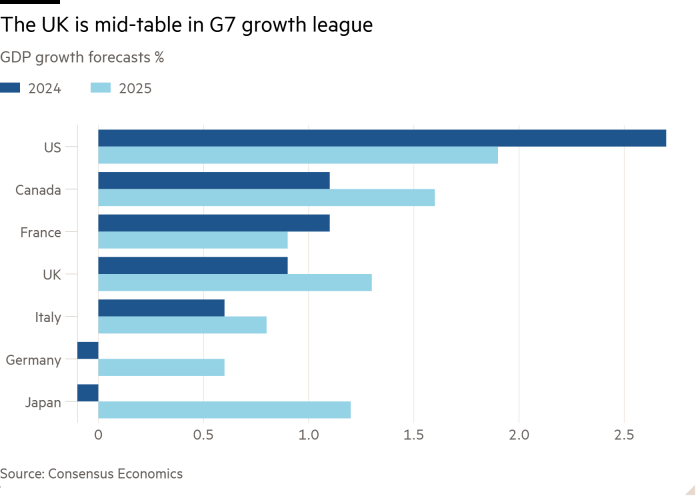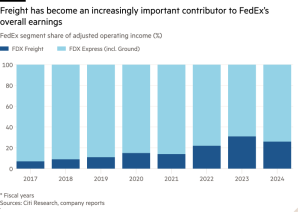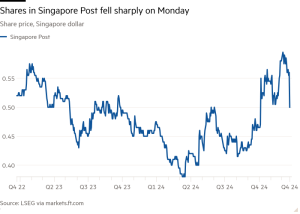Starmer to make household disposable income a key economic target

Unlock the Editor’s Digest for free
Roula Khalaf, Editor of the FT, selects her favourite stories in this weekly newsletter.
Sir Keir Starmer is to target household disposable income as a new “milestone” for rating the success of his economic policies, even as aides insist he is still committed to making Britain the fastest-growing G7 economy.
Allies of the prime minister insist he stands by Labour’s manifesto commitment to “secure the highest sustained growth in the G7”, but he has subtly shifted focus away from that measure in recent months.
The prime minister will issue new targets for his government on Thursday as part of a “plan for change”, which ministers have insisted is not a relaunch after a rocky few months in power.
Labour strategists have long worried that the G7 pledge has intrinsic flaws, not least because the performance of other major economies is outside the control of Downing Street.

Starmer’s team is also looking for ways to link the economic growth pledge — seen as Labour’s number one mission — to metrics that ordinary voters can understand.
While GDP growth is an accurate measure of an economy’s overall performance, it is less good at measuring a population’s welfare and living standards. Real household disposable income measures total household earnings such as wages and benefits after tax and accounting for inflation.
Government insiders say that raising household disposable income will be a target set out by Starmer in his speech, but they say it will be an “additional” milestone and would not replace the G7 target.
Asked whether Starmer was dropping his ambition to make Britain the fastest growing G7 economy, a spokesman said: “Absolutely not.”
Labour appears to have wavered over the specific G7 target after announcing it last year.
In May — two months before the election — Starmer announced his six priorities for government, but a poster at the launch event featured a vague promise of “economic stability”, rather than the G7 pledge.
The target did appear in Labour’s manifesto published in June, and Starmer’s team insist that it remains official party policy.
Starmer’s “plan for change” on Thursday will set out a range of targets covering the economy, health, education, crime and green energy, intended to show voters that he is making progress on election promises and to put pressure on Whitehall to deliver.
However, the CBI employers federation has warned that business confidence on future UK growth has fallen sharply since chancellor Rachel Reeves’ Budget on October 30, which featured £40bn of tax rises.
The CBI said that for the first time this year expectations for growth had tipped into negative territory.
Alpesh Paleja, the CBI’s interim deputy chief economist, said: “As we head into 2025, expectations for growth have taken a decisive turn for the worse.”
#Starmer #household #disposable #income #key #economic #target





